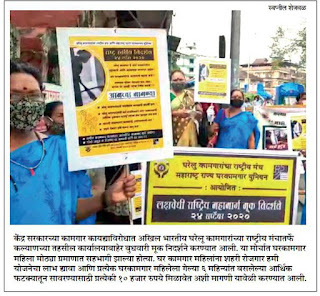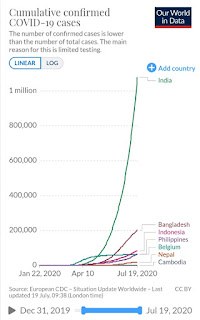In Nepal, on International Youth Day, an intensive discussion program on
Youth for Social Transformation was held via Zoom. The Minister of Youth and Sports, Honorable Jagat Bishwokarma, was the chief guest for the program with Mr. Madhab Dhungel, Vice-president (National Youth Council Nepal) as special Guest. Mr. Tilottam Paudel, President of Jagriti Child and Youth Concern Nepal and the Coordinator for National Coalition for Girls Rights (NCGR) facilitated the program between 70 participants, including dignitaries from 30 Civil Society Organizations, three iNGOs, five government representatives, 12 civil society networks, representatives from National Human Rights Commission (NHRC) and Youths. The program was organized by Jagriti Child and Youth Concern Nepal (Jcycn), SDGs Studio and DHR Nepal in collaboration with the National Youth Council and NCGR. It was supported by KANALLAN Switzerland with Devchuli Television as Media Partner.
The session started with a welcome speech by Ms. Irada Parajuli, executive Committee Member of NCGR. She was followed by Ms. Aastha Anirjit Bastakoti, a girl activist and a peer educator in Jcycn’s Girls Empowerment Program, who shared her experiences with tackling the social problems in her community, and municipality through organization and collaboration. She shared the support she gained, the challenges she faced and gave an inspiring speech to motivate fellow youth to raise their voices and work for social transformation by starting from ourselves, and to put words into practice.
Honorable Jagat Bishwakarma, Ministry of Youth and Sports shared the contextual need for programs like these and extended his gratitude and wishes to all Nepalese youth, in and out of Nepal. Focused on the theme of International Youth Day 2020 “Youth Engagement for Global Transformation”, he highlighted the need to create spaces for youth to be engaged and the need to forward a campaign where we can move ahead, together with youth to transform our society, while fighting practices harmful to us, especially child marriage, violence against children and girls, and discrimination, for a better future.
Mr. Sushil B.K.; writer, Gender Equality and Social Inclusion Expert and activist, gave a presentation regarding the role youth can take play in eliminating harmful social and cultural practices like Gender Based Violence, Caste best Discrimination, Chhaupadi, Dowry System, and Child Marriage, with the comparative portrayal of the society’s reality and what we need to achieve. Milan Dharel, Executive Director of National Child Rights Council highlighted the need of a critical perspective in youth to move ahead, the need to build trust, and more importantly, be our own role models so that our words are reflected in our actions. This was followed by a speech from Mr. Pushkar Khati, Member Secretary from the Social Welfare Council Nepal, who focused on the need for accountability in youth, self-reflection, and the need to spread that spirit among all the youth in the nation.
In the open floor session, participants discussed about various ways socio-cultural transformation through youth is possible, including government and stakeholder joint action programs, regularity of collaboration, personal accountability, inclusion of youth with disability, and gender minority, and an organized movement. Dignitaries and participants discussed the government policies targeted at youth, how it has progressed throughout the years but also the gaps in implementation, and especially equitable implementation disaster, the COVID-19 pandemic and its impact on the economy and youth. Dipendra Sharma from Care Nepal shared his field based experience and the issues that are prevalent in the society, which are especially discriminatory towards girls. The province 5’s head of province of NHRC Ms. Samjhana Sharma also talked about the role the human rights commission has played, and what kind of practices to progress are seen. Activists Bhakta Bishwakarma, Rabin Nepali, Karun Nepali from Raleigh International, and Journalist K.B Rana also shared their views in the discussion forum.
After the open floor session, Mr. Madhav Dhungel, Vice President of National Youth Council Nepal discussed various programs brought forth by the National Youth Council (NYC) for the engagement of youths, entrepreneurship, capacity building and employment of youth and the role it plays in development of the nation. He also went into how NYC has been mobilizing youth in collaboration with other stakeholders with a goal to generate a progressive society, and working as a bridge between youth and opportunities. He elaborated on how this can result in a transformative society with active, and engaged youth that are more aware.
Ms. Manmaya Bhattarai Pangeni, Joint Secretary, Ministry of Women Children and Senior Citizens elaborated that 2020 is the year of Generation Equality and how the meaningful participation of youth is important and we need to be creating spaces for them. It is equally important to groom children from an early age and provide them with moral education so that we generate strong youth who are socially responsible. She gave examples of good international practices that have developed a culture of progressive youth. The program ended with a vote of thanks from Mr. Pradeep Lamichhane, Chairperson of SDGs Studio.
In celebration of the International Youth Day 2020 with the slogan, “Youth Engagement for Global Action”, the main ceremony was celebrated with various virtual programs, on 12th August with Prime Minister KP Oli as the chief guest, and in the virtual presence of international guests from Bangladesh, Sri-Lanka, China and India. The program was led by National Youth Council, in joint collaboration with various other Civil Society Organizations like Jcycn, UNOY, NCGR, SPCSN, AYON, Nepal Scouts, and 100 others. Welcome for the program was done by the Ms. Bipana Sharma, on behalf of AYON, Jcycn, NCFLG Forum and the entire youth. Prime Minister KP Oli focused on youth being the pillar of the nation and how investing in youth is investing in the future. He mentioned that the government of Nepal has allocated 7.6 billion Nepalese Rupees from different ministries and departments in youth sector, and that the priority of the government is to empower youth with knowledge, skills and tools. International Speakers and guests like Honorable State minister H.E. Md. Zahid Ahsan Russel, Ministry of Youth and Sports, Government of the People’s Republic of Bangladesh, Country representative Ms Valerie Julliand, Resident Co-ordinator of United Nations in Nepal, Secretary, Ministry of Youth and Sports, Mr. Md. Akhter Hossain, Government of the People’s Republic of Bangladesh, Chairman, National Youth Services, Sri Lanka Theshara Jayasinghe Training Director, National Youth Service Council, Mr. Rasitha Delapola, Sri-lanka, and Deputy Director, International Youth Exchange Centre, Mr. Zhang Hua, China also shared their words highlighting the need to mobilize and engage youth for a better tomorrow.
International Youth Day 2020, like every year, was successfully celebrated with programs all over the nation.













